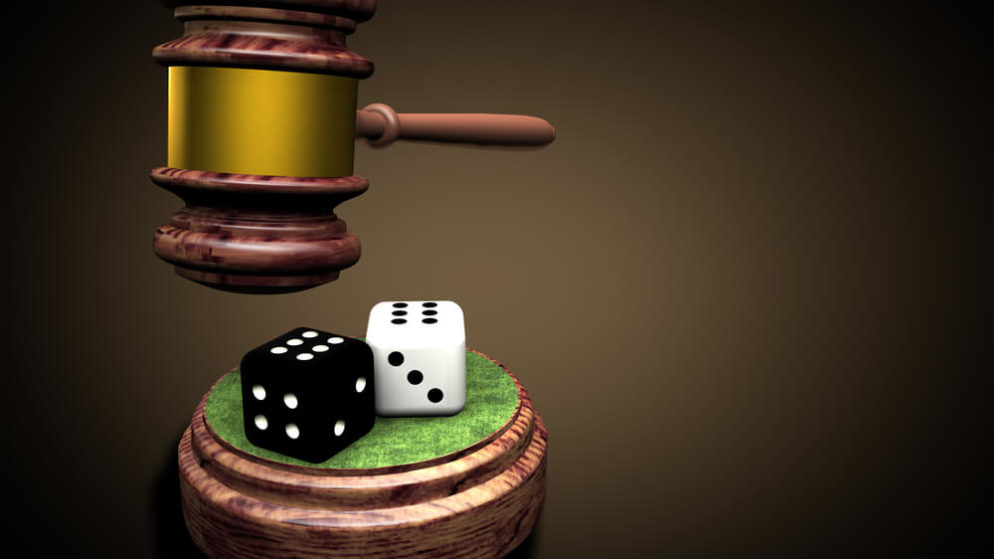

New Jersey sports betting law has long prohibited betting on college teams and athletes. This means that bettors within the state are currently not allowed to bet on in-state collegiate events or teams regardless of where these events are hosted.
To change all that, New Jersey is looking to amend the law to allow some form of betting on NCAA tournaments and championships. If Amendment 133 is successful, sportsbooks will soon be able to take action in NCAA Division I Championship events that take place within state lines. Punters should note, however, that Amendment 133 will not repeal the in-state college ban as a whole.
Rather, regular-season tournaments involving in-state teams or taking place within the Garden state will still be proscribed. Additionally, any conference level championships, as well as low-level NCAA championships, would still be banned.
Many regulatory bodies, as well as lottery and gaming authorities across the country, prohibit wagering on collegiate sporting or athletic events and tournaments. It has always been the intent of such laws to protect the welfare of student-athletes, as well as prevent the exposure of students and the overall intercollegiate athletics network to unwarranted influence.
Although NCAA has been at the forefront of speaking out against betting on college and high school sports, states such as New Jersey, New York, New Mexico, Virginia, Rhode Island, Arkansas, Illinois, and more also prohibit the wagering of college and university level sporting events.
In other states such as Iowa, Indiana, and West Virginia, however, fans are allowed to bet on the outcome of college games. In these states, where betting on college sports is allowed, no evidence has come to light that the legal wagering on college sports has compromised the integrity of sporting events. To date, there are still no recorded attempts of match-fixing in any of these states, which is proof that NCAA wagers are not as perilous as they have been painted to be in the past.
Proponents of the thriving sports industry claim that banning wagers on college sports will ultimately work against them, especially because black markets for wagering in such events exist and still remain a solid option for punters. As a matter of practicality, any punter that wants to wager on collegiate games simply just has to go to a state that allows it or wager through an illegal online site.
So the question remains, where would regulatory bodies rather have this betting activity occur? If there is a choice to be made between no transparency in the industry and total transparency with consumer protections, then it appears that the choice is pretty simple.
What we cover
Even NCAA is opening up to changes in sports betting
Ever since the archaic PASPA prohibiting sports betting was scampered by the U.S Supreme Court as we’ve discussed here, the NCAA and its associated schools have been struggling to find their place in a strange land. The NCAA has always been against sports betting, especially as it relates to college sports.
For decades, the NCAA has maintained its stance on sports wagering, both legal and illegal, mainly for purposes of preserving the integrity of college sports competitions. It has done so to also protect the welfare of its athletes, who are more likely to develop gambling problems.
So for years, the NCAA took it upon itself to fight every effort to legalize sports betting or any attacks on PASPA in various courtrooms across the country. It wasn’t until 2018’s Supreme Court’s monumental decision that the NCAA was forced to adjust its outlook.
Today, the organization is evaluating which NCAA rules need to change and how best it can uphold the integrity of college sports as the sports betting market continues to sweep states all over the country. With more and more states embracing legalized sports betting, particularly after this pandemic, the NCAA has little time to adjust and close the widening gap.
The good news is that it is starting to make small changes that will lead to even bigger transformations in the future. Case in point, the NCAA now supports a rule change that will soon see student-athletes profit from their names, images, and likeness, as long as the associated college or university that the student attends does not pay the athletes directly.
This new amendment will see student players receive compensation from basic things such as social media and personal appearances. Allowing compensation, as well as 3rd party endorsements is uncharted territory for the organization but the future has never looked brighter.
Final Thoughts
Legalized sports betting has only been around for 2 years, but it is certainly not new. Before PASPA was struck down by the Supreme Court, people had been wagering on college sports in myriad ways. Some of these ways include legal betting in states such as Nevada, as well as across Europe and in other parts of the world.
Lots of NCAA bets were also placed via various local bookmakers, although illegally and many more were made via offshore bookies, also operating illegally. As such, whether the NCAA would like to admit or not, people have been placing and will likely continue to place NCAA wagers.
All of this activity, whether legal or illegal translates to millions of dollars being made on college athletes already. To avoid losing funds, NCAA and related parties need to do whatever it takes to foster a working relationship with sports operators. Indeed, that’s the only way to move forward in this rapidly changing landscape.
Are you a New Jersey resident interested in playing online in our state and taking advantage of the best offers? Check out our curated list of NJ casinos, NJ sportsbooks, and online bonuses. And if you are a poker player, please check our list of Best Poker Sites in New Jersey.












